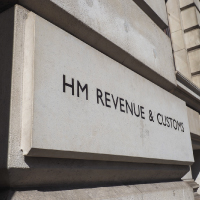
Recommended contact person
In recent years, Dubai has emerged as a global hub for businesses, investors, and high-net-worth individuals seeking strategic locations for wealth management, asset protection, and philanthropy.
Among the various legal structures available in Dubai, foundations have gained significant traction due to their flexibility, privacy, and favorable regulatory environment. This article provides a general guide to establishing a foundation in Dubai, outlining the legal requirements, benefits, and steps involved in the process.
Understanding the Concept of a Foundation
A foundation in Dubai is a legal entity designed for holding and managing assets, which can be used for various purposes such as family wealth management, estate planning, asset protection, and charitable activities. Unlike a trust, a foundation does not have shareholders, members, or owners; instead, it operates under a charter and by-laws established by the founder. The foundation is managed by a council, which acts in accordance with the founder’s wishes and the foundation’s objectives.
Foundations are typically established in Dubai under two jurisdictions: the Dubai International Financial Centre (DIFC) and the Abu Dhabi Global Market (ADGM). Both jurisdictions offer a good legal framework, regulatory oversight, and a favorable tax environment, making them attractive for individuals and entities looking to establish foundations.
Legal Structure and Purpose of a Foundation
A foundation in Dubai serves as a legal vehicle that can own and manage assets, enter into contracts, sue or be sued, and engage in any lawful activities specified in its charter. The key distinguishing feature of a foundation is its independence from ownership by shareholders or members, making it an ideal structure for purposes such as:
- Family Wealth Management – A foundation can help families consolidate and manage their assets, ensuring they are preserved and distributed according to the founder’s wishes.
- Estate Planning – Foundations can provide a mechanism for orderly succession planning, allowing assets to be transferred to heirs without the complications of probate.
- Asset Protection – By placing assets in a foundation, they can be shielded from potential creditors, litigation, or political risks.
- Philanthropic Activities – Foundations are commonly used for charitable purposes, such as funding educational institutions, healthcare initiatives, or cultural projects.
Requirements for Establishing a Foundation in Dubai
Setting up a foundation in Dubai involves meeting specific legal, financial, and procedural requirements. These requirements vary slightly between the DIFC and ADGM jurisdictions but generally include the following:
Founders
- Minimum Number of Founders: At least one founder is required to establish a foundation. The founder can be an individual or a corporate entity.
- Residency Requirements: The founder does not need to be a resident of the UAE. This flexibility allows foreign individuals and entities to establish foundations in Dubai.
Council Members
- Minimum Number of Members: A foundation must have at least two council members, who can be individuals or corporate entities.
- Responsibilities: The council members are responsible for managing the foundation’s assets, overseeing its operations, and ensuring that its objectives are met in line with the founder’s wishes.
- Residency Requirements: There are no specific residency requirements for council members, which allows flexibility in appointing individuals or entities from different jurisdictions.
Registered Agent
- Requirement: If the foundation does not have a physical office in the DIFC or ADGM, a registered agent must be appointed. The registered agent must be licensed to operate in the relevant jurisdiction and will act as the primary point of contact for regulatory authorities.
Foundation Charter and By-Laws
- Foundation Charter: The foundation charter is a legal document that outlines the key details of the foundation, including its name, objectives, duration, initial assets, and information about the founder(s). The charter serves as the foundation’s constitution and must be registered with the relevant regulatory authority.
- By-Laws: The by-laws govern the internal management of the foundation, detailing the powers of the council, decision-making processes, rules for appointing and removing members, and other administrative matters. The by-laws are not publicly available, providing a layer of privacy for the foundation’s internal affairs.
Capital Requirements
- Minimum Capital: There is typically no minimum capital requirement to set up a foundation in the DIFC or ADGM. However, a nominal amount, such as USD 100 or its equivalent, is often contributed to demonstrate the establishment of the foundation. The foundation’s assets can be increased over time based on the founder’s objectives.
Compliance and Reporting
- Anti-Money Laundering (AML) Compliance: Foundations must comply with the UAE’s AML laws and regulations, which require them to maintain accurate records, conduct due diligence, and report suspicious activities to the relevant authorities.
- Annual Reporting: Foundations are generally required to prepare and file annual accounts and financial statements, depending on their activities and jurisdictional requirements. These reports help ensure transparency and accountability.
- Audit Requirements: An audit may be required if the foundation is conducting substantial business activities or if specified in its charter or by-laws. An audit provides assurance that the foundation’s financial statements are accurate and comply with applicable laws.
Office Address
- Registered Office: The foundation must have a registered office in the jurisdiction where it is established (DIFC or ADGM). This can be the office of the registered agent or a dedicated office space within the jurisdiction.
Fees and Costs
- Registration costs: There are registration costs for setting up a foundation, which vary depending on the jurisdiction. For example, DIFC’s registration charges start at around USD 12,000, plus annual fees. ADGM also has its own fee structure.
- Legal and Professional Fees: Additional costs may include legal, consulting, and administrative fees, depending on the complexity of the foundation’s structure and objectives.
Duration and Dissolution
- Duration: A foundation can be established for a specified period or perpetually, depending on the objectives outlined in the foundation charter.
- Dissolution: Provisions for dissolution should be clearly defined in the foundation’s by-laws, including how assets will be distributed upon dissolution.
Steps to Establish a Foundation in Dubai
Establishing a foundation in Dubai involves several steps, which must be followed carefully to ensure compliance with the relevant legal and regulatory requirements. Below is an overview of the typical process:
Select the Jurisdiction
The first step is to choose the jurisdiction in which the foundation will be established. The DIFC and ADGM are the two primary options, each offering its own legal framework, regulatory authority, and benefits. The choice of jurisdiction will depend on factors such as the foundation’s objectives, the nature of the assets to be held, and the founder’s preferences.
Draft the Foundation Charter and By-Laws
The foundation charter and by-laws must be drafted carefully to outline the foundation’s objectives, governance structure, and operational rules. It is advisable to seek legal counsel to ensure that these documents comply with the relevant laws and accurately reflect the founder’s intentions.
Appoint the Council Members and Registered Agent
The founder must appoint at least two council members who will be responsible for managing the foundation’s assets and operations. If the foundation does not have a physical office in the chosen jurisdiction, a registered agent must also be appointed to act as the primary point of contact for regulatory authorities.
Register the Foundation
The foundation must be registered with the relevant regulatory authority in the chosen jurisdiction (DIFC or ADGM). This involves submitting the foundation charter, by-laws, and other required documents, along with the registration fee. The registration process may take several weeks, depending on the complexity of the foundation’s structure and the completeness of the submitted documents.
Comply with Regulatory Requirements
Once the foundation is established, it must comply with ongoing regulatory requirements, such as maintaining accurate records, filing annual reports, and adhering to AML regulations. Regular audits may also be required, depending on the foundation’s activities and jurisdictional requirements.
Manage the Foundation’s Assets
The foundation’s council members are responsible for managing its assets in accordance with the founder’s wishes and the foundation’s objectives. This may involve investing the assets, distributing funds to beneficiaries, or supporting charitable activities, as specified in the foundation charter and by-laws.
Benefits of Establishing a Foundation in Dubai
Establishing a foundation in Dubai offers several benefits, including:
Asset Protection
A foundation provides a robust legal structure for protecting assets from potential creditors, litigation, or political risks. By placing assets in a foundation, they are no longer directly owned by the founder, reducing their exposure to external threats.
Privacy and Confidentiality
The by-laws of a foundation are not publicly available, providing a layer of privacy for the foundation’s internal affairs. This makes it an attractive option for individuals and families seeking to protect their wealth and personal information.
Succession Planning
A foundation can serve as a vehicle for orderly succession planning, allowing assets to be transferred to heirs without the complications of probate. This ensures that the founder’s wishes are respected and that family wealth is preserved across generations.
Tax Efficiency
Foundations established in the DIFC and ADGM benefit from a 0% tax rate on income, capital gains, and withholding tax, making them a highly tax-efficient vehicle for wealth management. Additionally, the UAE’s extensive network of Double Taxation Avoidance Agreements (DTAA) with numerous countries provides further tax advantages.
Flexibility
Foundations offer a high degree of flexibility in terms of their purpose, governance structure, and asset management. They can be tailored to meet the specific needs and objectives of the founder, whether for family wealth management, philanthropic activities, or other purposes.
Conclusion
Establishing a foundation in Dubai is a strategic decision that offers numerous benefits for individuals and entities seeking to protect their assets, manage their wealth, and achieve their long-term objectives. With its favorable regulatory environment, robust legal framework, and attractive tax benefits, Dubai has become a preferred destination for setting up foundations.
By understanding the requirements, benefits, and steps involved in establishing a foundation, you can make an informed decision and successfully navigate the process. Whether for family wealth management, estate planning, or philanthropy, a foundation in Dubai can provide a secure and flexible solution for achieving your goals.
For all enquiries please contact our team of experts at agp@agplaw.com
Read more: UAE Foundations – The Ultimate Hybrid
The information provided in this article is for general informational purposes only and should not be construed as legal, financial, or professional advice. While every effort has been made to ensure the accuracy of the content, there may be errors, omissions, or changes in regulations that could affect the accuracy or completeness of the information presented.
If you are considering establishing a foundation in the UAE or require specific advice tailored to your individual circumstances, we strongly recommend consulting with a qualified professional.















